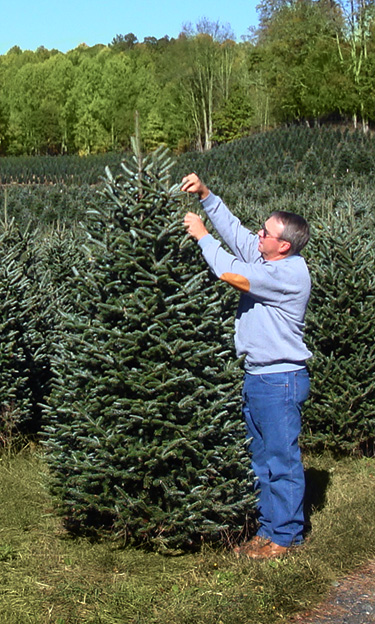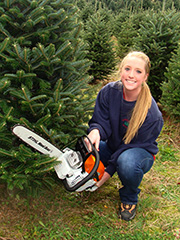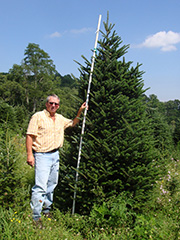 One of our goals in growing Fraser fir is to cultivate the healthiest possible trees with the least impact to the environment. As is the case with any agricultural operation, our farmers have to deal with the variety of pests and diseases that can affect the health and quality of the trees we produce.
One of our goals in growing Fraser fir is to cultivate the healthiest possible trees with the least impact to the environment. As is the case with any agricultural operation, our farmers have to deal with the variety of pests and diseases that can affect the health and quality of the trees we produce.
We are aware of the impact that pesticides and other chemical treatments have on the local ecology, affecting populations of beneficial insects, animals, and fish from water runoff in treated areas. Equally troubling is the problem of groundwater contamination that can affect community water supplies.
Thus, considering the need to control pests while minimizing the impact to the environment, we use Integrated Pest Management (IPM) farming methods.
IPM is a highly developed agriculture science that controls pests instead of eliminating them altogether. To do this, throughout the seasons, we monitor the health of our trees, watching for the appearance of common problem insects, diseases, and other invasive plant species and use only appropriate interventions. Many times, just catching a problem before it spreads through an entire field and reacting with an appropriate and targeted intervention is all it takes to keep certain pests from damaging crops.
If an IPM farmer uses chemical treatments, they are used as a last resort. Instead of using broad spectrum chemicals that kill many insect species, the IPM farmer chooses treatments designed to kill the particular pest with which he is concerned. Further, he is only going to treat plants in the vicinity where pests have been identified.
IPM farming is smart farming that requires extra work. The payoff is a healthy, sustainable environment and, in our case, the healthiest Christmas tree.
For more information, see Pest Control in Fraser Fir Christmas Trees by the North Carolina State University Cooperative Extension.







